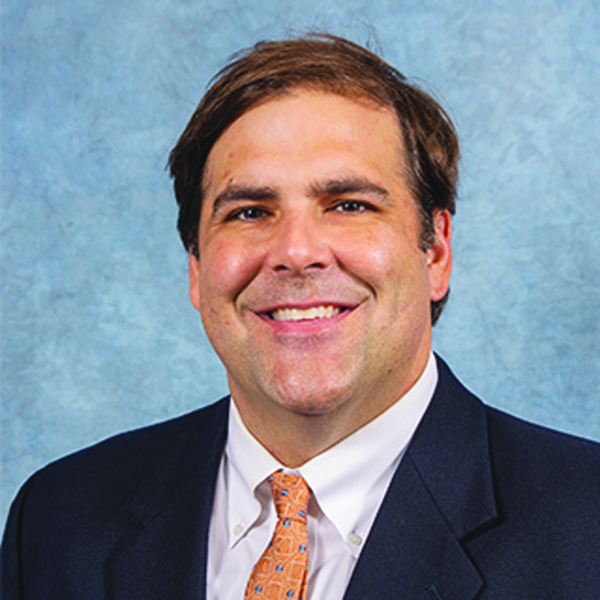MACC system adapts constantly to changing business and industry education demands
Admission is up at community colleges, as more young people opt for a two-year degree or training certification rather than racking up crushing student loan debt at traditional four-year colleges.
“More people are going the non-traditional route,” said Kell Smith, executive director of the Mississippi Association of Community Colleges (MACC). “They’re looking at community colleges as their full education package.”
For example, Northwest Mississippi Community College has seen a 40% increase in enrollment in career-tech programs over the last two years.
“Given all the business and industry, especially in the Memphis area, the northwest corridor is absolutely booming,” said Smith.
In 2022, enrollment at Mississippi’s 15 community colleges was 90,859.
The MBJ spoke with Smith about trends in community college education, particularly career-tech programs, in Mississippi.
Tell us about new CTE (career and technical education) programs that have been implemented because of industry demand.
We have about 130 career-tech programs offered across the state. In the past year, new programs our (Mississippi Community College) Board has approved include industrial mechanics, maintenance technology, and landscaping at Pearl River; dental assisting and hygiene at Mississippi Gulf Coast; computer networking, carpentry, and commercial/residential construction technology at Mississippi Delta, surgical technology and medical lab technology at Jones County, and marketing technology at East Central.
What are the hottest career-tech programs?
Any kind of medical program in the healthcare industry is hot. Training in the construction trades is popular, as is any kind of HVAC program and the like. Computer networking, artificial intelligence, cybersecurity … all of those are popular.
Does the community college system have a two-year degree in artificial intelligence (AI)?
Not yet. But, we have the Mississippi Artificial Intelligence Network (MAIN) that Mississippi Gulf Coast is overseeing. That particular program is funded through AccelerateMS, and it incorporates AI into various programs. We’re at the beginning of the program, but we’re at the forefront nationwide.
What niche career-tech programs come to mind?
In the Delta, you have agriculture programs. On the coast, you have welding programs because of the shipyard. We have culinary programs on the coast because of the hospitality industry, but also at Hinds County. Funeral service and mortuary programs are offered at East Mississippi and Northwest Mississippi.
Do you have the personnel to accommodate enrollment growth?
I’m glad you asked because that’s an issue with career-tech programs, in particular. When you’re talking about a nursing program, those instructors have to have a nursing background. And you can make a lot more money, oftentimes, in private practice. It’s the same in construction trades. Attracting and retaining qualified instructors has always been an issue.
How do you ensure your career-tech programs align with workforce development needs?
The last thing we want is for a student to go through a career-tech program and find out the skills taught don’t transition into the workforce. Last year, we wrote, or rewrote, 25 or so curriculums, with business and industry at the table for all those meetings and conversations.
Do you have adequate funding for career-tech programs?
Career-tech programs are expensive to offer because of instructor costs and high equipment costs. Above the regular budget, over the last two or three years, the legislature has provided a dedicated revenue source, the Career Advantage Program. This year, it’s $10 million. It’s included in our agency appropriation bill and dispersed to the colleges based on formula.
What’s the greatest challenge you face with career-tech programs?
We have to change the stigma of career-tech education. It’s not just a Mississippi problem, but a national problem. It’s no longer simply working in a warehouse, doing manual labor for 40 hours a week. You’re talking about highly skilled programs that are fun and cool. They deal with computers and robotics. If we could change that perception, it would certainly help steer students into those programs.
What’s the highest-paying job coming out of the community college system?
Probably something in the healthcare field—an associate degree nurse or a physical therapy assistant. I don’t have salary information in front of me. You’ve got folks like HVAC people and plumbers who make really good money. Try to find an HVAC technician right now to come out and look at your air conditioner. If you have a plumbing issue, it’s going to cost you a couple hundred bucks just to get someone to come out. We can’t pump out enough students in those types of industries.
How will community colleges assist with the AWS data centers being built in Madison County?
Holmes County and Hinds County are partnering with Amazon and AccelerateMS. Leaders of those two colleges have made trips to (an Amazon data center in) Seattle to visit with industry leaders from Amazon to determine the services and training they’re going to need.


